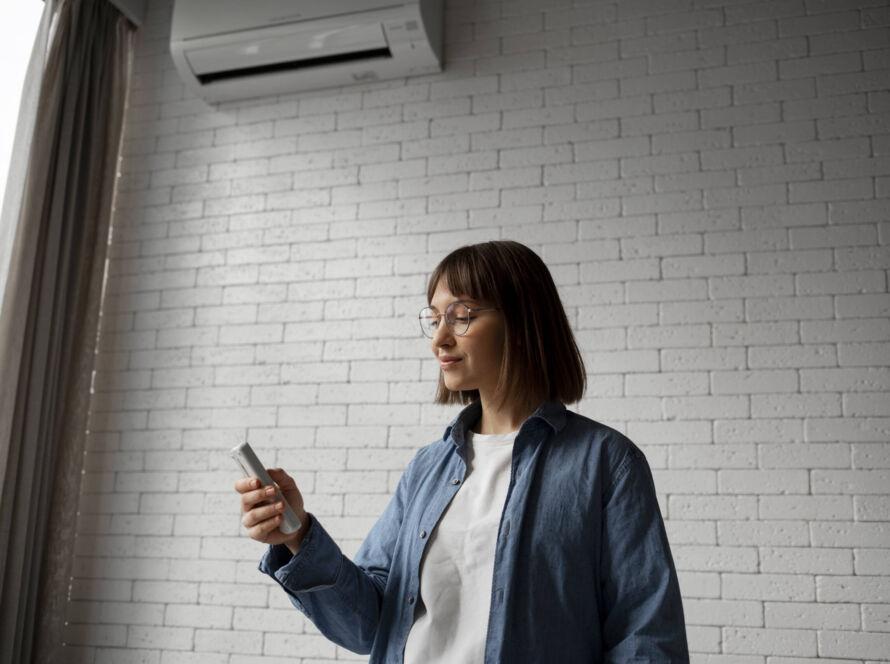

Indoor air quality can be a major factor in your well being and comfort. Is your home feeling stuffy? Most people don’t think about indoor air quality, but it plays a big role in your health and comfort. Poor indoor air quality can lead to headaches, allergies, and other respiratory problems. Fortunately, there are some simple steps you can take to ensure that the air you breathe is clean and healthy.
When all else fails, Expert Air is here to restore your HVAC system to improve the overall air quality in your home. For more information about our trusted services call Northshore at 985-773-9776 or Southshore at 504-756-4275 for the experts to improve your air.
How to Improve Your Indoor Air Quality
1. Control Pollutants
The first step to improving your indoor air quality is to identify any pollutants that may be present in your home or workplace.
Common sources of pollutants include paint fumes, cleaning products, pet dander, dust mites, mold spores, and secondhand smoke. To help control these pollutants, make sure to properly ventilate your space (open windows when possible), use natural cleaning products whenever possible, and limit the number of pets in your home.
2. Change Your Air Filters Regularly


The next tip is to change your air filters regularly in order to keep them free from dust and debris which can reduce airflow and hinder the efficiency of the system itself.
The frequency at which you should change your filter depends on the type of filter you have installed; however, as a general rule-of-thumb it’s recommended that you replace it every three months.
3. Install an Air Purifier
Installing an air purifier is another great way to improve your indoor air quality as it can help remove allergens like pollen and dust mites from the air as well as capture any airborne pollutants like smoke or pet dander that might be present in your home or workplace environment.
4. Keep Your Home Clean
Keeping your home clean will also help improve the overall quality of the indoor air by reducing the amount of dust particles in circulation throughout each room or area of a building as well as eliminating potential breeding grounds for mold and mildew growth which can cause serious respiratory issues if left untreated for long periods of time.
Steaming carpets is a good alternative for a deeper clean. It is effective at removing embedded dirt particles deep within fibers which regular vacuums are unable to reach on their own.
Regularly dusting surfaces, and mopping hard floor surfaces will help reduce airborne particles and contaminants in the air.
5 Maintain Good Ventilation
Last but not least maintain good ventilation throughout each room or area of a building. This helps rid stale odors while at the same time promoting healthier levels of oxygen concentration. Proper ventilation might not always be available due to certain external factors like location or climate conditions.
This can be achieved by using fans or even installing small exhaust systems near areas where odor buildup tends to occur more frequently than others such as bathrooms, kitchens, etc.
6. Air it Out


Opening windows from time to time can be beneficial for improving indoor air quality. This is because opening windows allows fresh air from outside—which hasn’t been exposed to the same pollutants as inside air—to enter your living or working space and replace stale, polluted air inside. Just make sure you open windows when outdoor pollution levels are low!
7. Avoid Chemical-Based Cleaners
When Possible. Many cleaners contain harsh chemicals such as bleach, ammonia and formaldehyde which can have negative effects on both human health and indoor air quality alike. Whenever possible, try using natural cleaning products instead; there are plenty of eco-friendly options out there that do just as good of a job without introducing harsh chemicals into your home or office environment!
8. Monitor Humidity Levels Regularly
High humidity levels indoors can lead to mold growth which has serious consequences for both human health and building structure alike. To avoid this issue altogether, use a dehumidifier when necessary (especially during summer months) and keep track of humidity levels with a hygrometer regularly so that any potential issues can be addressed before they become serious problems!
Schedule Expert Air to check your humidity levels.
Contact Expert Air
For improved air quality, Expert Air is always here to help improve your HVAC system. Maybe it goes deeper than just a cleaning. We have the tools and know the methods to restore your HVAC system to its best functioning condition. Get in contact with us today to schedule a service!



